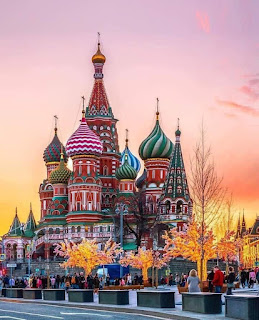By Sergio Alejandro Gómez
The
recent 44th General Assembly of the Organization of
American States (OAS) held in Paraguay’s capital
Asunción, clearly showed that the United States is
increasingly alone in its efforts to isolate Cuba, a
strategy unsuccessfully followed since January of
1959.
Although the issue was not listed on the official
agenda, debate on Cuba’s participation in the
upcoming Summit of the Americas, to be held in
Panama next year, occupied a good amount of time at
the June 3-5 gathering.
It
is not, in fact, an issue to be decided by the OAS
itself, but one made by the country organizing the
Summit. It was clear that sister countries in the
region are not disposed to live another 50 years
with the unjust exclusion of Cuba and lost no time
in making their position clear, reiterating that
they will not accept another meeting without Cuban
participation.
Cuba’s presence at these events, where heads of
state from the Americas gather every three years, is
a long-standing demand of the Latin American and
Caribbean community, since the first Summit was held
in Miami in 1994.
IF
CUBA IS EXCLUDED, SO ARE LATIN AMERICA & THE
CARIBBEAN
The
issue emerged immediately during the opening of the
44th Assembly, when Nicaragua began the first round
of statements and its representative Dennis Moncada
recalled, “It is not possible to hold another Summit
of the Americas without the presence of Cuba,” as
many said during the 2012 Cartagena meeting.
Throughout the three-day gathering, statements were
made by some 20 countries in support of Cuba. Roy
Chaderton, Venezuela’s permanent representative to
the OAS, insisted that “preconditions and vetoes”
with respect to Cuba must end.
The
delegation from St. Vincent and the Grenadines spoke
for the Caribbean Community (Caricom), reiterating
the group’s firm position in favor of Cuba’s
participation, and St. Lucian Foreign Minister Alva
Baptiste took advantage of the occasion to emphasize
Cuba’s accomplishments in health and education as
human rights, recalling that the majority of U.S.
citizens now support a change in Washington’s policy
toward Cuba.
Explicit rejection of the exclusion, along with
statements indicating that countries would not
attend the 7th Summit, if Cuba is not invited, were
again expressed by representatives from Ecuador,
Nicaragua, Venezuela and Bolivia. Argentina joined
this group, with Foreign Minister Héctor Timerman
summarizing the situation by saying, “If Cuba is
excluded, we consider ourselves excluded, as well.”
OAS
General Secretary José Miguel Insulza acknowledged,
at the conclusion of the event, that the great
majority of countries favor the attendance of all
countries, saying, “If we talk about inclusion, we
can not exclude anyone. All countries of this region
and the Caribbean must be present.”
DEFENDING THE INDEFENSIBLE
The
U.S. delegation, including Deputy
Secretary of State for Management and Resources
Heather Higginbottom and permanent OAS
representative, Carmen Lomellín, were obliged to
defend the indefensible U.S. position alone, with a
brief, tepid statement of support from Canada. The
two could only manage to repeat the overused U.S.
refrain about the need for a “democratic Cuba,”
before the country could attend a Summit of the
Americas. Lomellín and Higginbottom were responding,
surely unaware, to a question posed by Comandante en
Jefe Fidel Castro 52 years ago, in the Second
Declaration of Havana, when he asked, “How long will
they be so shameless and cynical to talk about
democracy?”
“If
democracy means the people, if democracy means
government of the people, then what is this?” he
added, speaking before hundreds of thousands of
Cubans gathered in Havana’s Plaza de la Revolución
for a general assembly of the people, following the
OAS decision made in Uruguay to expel Cuba.
Fidel was confident that Cuba would always have at
its side “the solidarity of all free peoples of the
world,” and “all honorable men and women of the
world,” clarifying that what had been heard in Punta
del Este was the voice of oligarchies, not that of
the peoples.
UNITY WITHIN DIVERSITY
It
was precisely this new voice of the people which was
heard in Paraguay, not only in support of Cuba, but
during discussions of common positions on the
region’s principal problems.
Based on the principle of unity within diversity, an
agreement was reached to call on Britain to
participate in talks with Argentina on the issue of
the Malvinas, with speakers emphasizing their
support for Argentine sovereignty over the islands,
occupied by force to create a 21st century British
colonial enclave.
The
U.S. delegation could not have felt comfortable with
the agreement, having violated the Inter-American
Treaty of Reciprocal Assistance, to support the UK
during the 1982 Malvinas War.
Those attending the General Assembly also voted to
support the government of Venezuela, facing violence
perpetuated by the right wing opposition and
supported from abroad. Foreign Minister Elías Jaua
described the attacks on the country’s
constitutional order which has been fully documented
and widely denounced.
The
OAS body agreed to a resolution supporting peace
talks between the Colombian government of Juan
Manuel Santos and the Revolutionary Armed Forces of
Colombia-People’s Army (FARC-EP) which have been
underway in Havana since November of 2012.
Colombia’s Foreign Minister María Ángela Holguín,
thanked everyone for their support, especially
guarantors Cuba and Norway, and companion countries
Venezuela and Chile.
VOTES FOR JUSTICE
The
future of Our America is to be found in integration,
in regional organizations such as the Community of
Latin American and Caribbean States (CELAC); Unasur,
(the South American Union); the Bolivarian Alliance
for the Peoples of Our America, Alba; and others.
These groups have shown that it is possible to build
unity within diversity, with respect for the
histories and cultures of all, without
discrimination.
These are the values recognized by the vast majority
of the world’s countries, in the yearly UN vote
against the U.S. blockade of Cuba. These are the
values of those who demand that Cuba be removed from
the spurious list of state sponsors of terrorism;
and by those recently assembled in Washington
demanding justice for the Cuban Five.
Now,
as U.S. citizens increasingly favor a change in U.S.
policy toward their neighbor to the south, it
behooves the government to stop listening to a
radical, right wing minority which supports
continued aggression and subversive operations in
Cuba.
How
far will U.S. disrespect for Latin American and
Caribbean countries go? How will the U.S. deal with
this increasing isolation, given the process of
change underway in the region? Will the U.S. boycott
the Summit of the Americas which it created, for
fear of being in the same room with a revolutionary
leader? These are only a few of the questions which
remain unanswered after the 44th General Assembly of
the Organization of American States.
June 11, 2014






